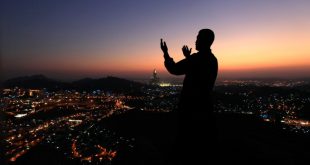All praise is due to Allah, we praise Him, we seek His help and we ask for His forgiveness. We seek refuge from the evil of ourselves and from the consequence of our evil actions .Whomsoever Allah guides there none to misguide and whomsoever Allah leads to go astray there none to guide. I bear witness that Allah alone is worthy of worship and that Muhammed (PBUH) is Allah’s slave and messenger. The best speech …
Read More »Faith & Culture
Maslow’s Hierarchy of Needs; Islamic Perspective
Bismillah, was-salatu was-salamu ala rasoulellah, In this paper I am going to present Abraham Maslow’s hierarchy of needs in the context of fulfilling human needs in Islam. I will provide examples from Qur’an and sunnah. Islam is a complete way of life which was chosen by Allah, the creator of the heavens and the earth. Thus, Islam is totally appealing to human needs as it organises both physical and spiritual sides of the human …
Read More »Why are some Foods and Drinks prohibited (with examples)?
In this article, I am going to touch on the concept of prohibited foods and drinks in Islam, shedding light on the reason they are prohibited from sharia perspective as well as modern science. There will be 3 parts to the paper: 1) Haram foods and drinks. 2) Evidence from Qurán and Sunna. 3) Five prohibited foods and drinks. Haram foods and drinks: Islam is the most comprehensive way of life. It organises people’s …
Read More »The Leadership of Abu Bakr and Omar
During the lifetime of the prophet (PBUH) the revelation had been linking the heavens and the earth and people had been witnessing the messenger. After the prophet’s death there was a real test for the caliphs following him. Will they hold fast to the teachings and message he had left? In this essay, I am going to touch on the caliphate of Abo Bakr[1] As-Siddiq and Omar Ibn Al Khattab[2] tackling 3 min issues: 1) …
Read More »Prophet Muhammed’s Teaching Methodologies
In this article, I am going to look into the teaching methodology of the prophet Muhammed (PBUH) relating it to the contemporary educational theories. The paper will be divided into three sections: 1) Introduction, 2) The prophet’s teaching methodology, 3) Conclusion. Introduction Prophet Muhammed (PBUH) is the greatest teacher who was able to transform the behaviours of a group of Bedouins in the Arabian Peninsula into the world’s leading civilisation in a relatively short time. …
Read More »Actions are Judged by Their Intentions (applied on modern aspects)
This research is about the first major legal fiqh maxim which is الأمور بمقاصدها i.e., actions are judged by their intentions and its applications in solving modern-day technological fiqh issues. The article will be divided into four main sections: 1) Introduction and meaning. 2) Evidences from Qur’an and sunnah. 3) The use of technology in the light of this maxim. 4) Conclusion. Introduction and meaning Actions are judged by intentions is the first major fiqh …
Read More »Muaweyah Ibn Abi Sufyan
Al hamdu Lellah, Was-Salatu was-Salamu ala rsoulellah: This article touches on one of the great companions of the prophet; that is Muaweyah Ibn Abi Sufyan (RA). It is divided into four sections: a) Introduction, b) Muaweyah’s virtues, c) The position of Ahlu-sunna regarding his mistakes, d) Conclusion. Introduction One of the most important beliefs a Muslim has is accepting the Quran and the authentic teachings of the prophet Muhammed (PBUH). Besides, an accurate methodology should …
Read More »2 Ways of looking into Consumption
Consumption is the end of the economic story. Companies spend a large amount of money on training employees, facilities, research, promotion, transport and many other things to reach this end. Many people consider consumption as an ultimate goal; to have this and have that, do this and do that. But is this really the case in Islam? In this research, I am going to touch upon the concept of ‘consumption’ in Islam and in conventional …
Read More »Islam and Culture
The “Culture” concept is becoming wider in its perspective. That is, it overlaps with some other ideas, such as civilisation. I will try to bring things together to better understand “culture” in relation to Islam. “Culture” is seen as the total sum of civilisation, cultivation, thought and the whole life in its material and spiritual dimensions (As-Sayeh, 1977). Habannakah (1998) suggests that the meaning of “culture” encompasses the different kinds of human development which are …
Read More »







